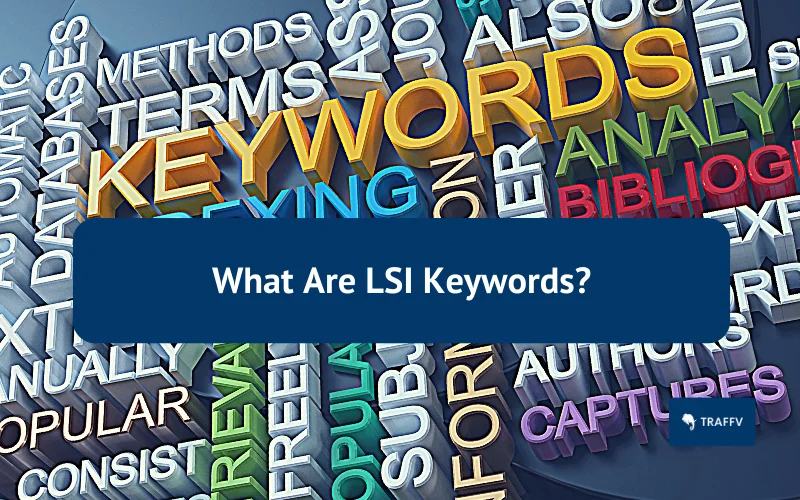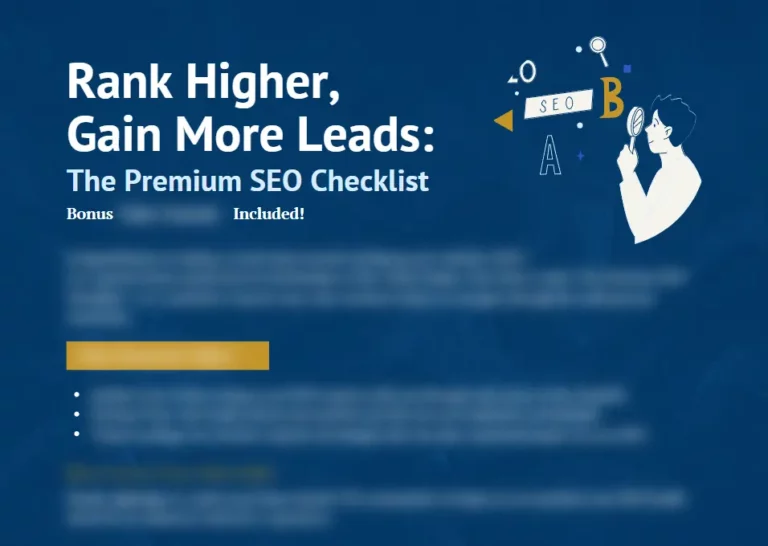Ever wondered what makes your content truly stand out in the vast ocean of information on the internet?
In this blog post, we’ll dive deep into the world of Latent Semantic Indexing and provide best practices for content creation.
Let’s get started!
TL:DR
- LSI keywords are terms that can help search engines understand content and improve rankings.
What are LSI Keywords?
Latent semantic indexing (LSI) keywords are terms that are contextually relevant to the content and topic of a webpage, thus helping search engines better understand the page.
These semantically related keywords play a crucial role in demonstrating the relevance of the content, ensuring that search engines like Google can grasp the subject matter of a page.
To find LSI keywords, you can analyze the top-ranking pages for relevant results, examine the related searches at the bottom of search results, and consider implementing the suggestions most pertinent to your web page.
There are various SEO tools and techniques available to help you with finding LSI keywords and related terms to include in your content, thus improving its overall performance in search engine rankings.
Although the importance of LSI keywords in SEO is debated, they can still assist in ranking for more keyword phrases, improve a website’s topical relevancy, retain visitors on the website for longer, and help search engines comprehend the content and subject of a webpage.
Do you think you should include LSI keywords in your content?
It is highly recommended to utilize LSI keywords for better SEO results.
The answer is yes and no, as we’ll explore further in this blog post.
It’s essential to understand that while LSI keywords can be beneficial, they are not the only factor contributing to a webpage’s success.
Instead, they should be seen as one of the many elements that can help search engines understand your content and improve its rankings.
What is Latent Semantic Indexing?
Latent Semantic Indexing (LSI) and Latent Semantic Analysis (LSA) are one and the same.
It is a natural-language processing technique that was developed in the 1980s.
It uses intricate mathematical equations to identify correlations between words and phrases from a collection of documents, which helps search engines understand the context around the target keyword and improve the relevancy of search results.
In the context of Search Engine Optimization (SEO), LSI technology identifies words with similar contexts, assisting search engines in comprehending the overall subject of a page.
This improved understanding of content allows search engines to deliver more accurate and relevant search results to users.
However, it’s important to note that while LSI keywords can help search engines understand the content, they should be used in conjunction with an appropriate keyword density to avoid keyword stuffing and ensure a natural flow of content.
This means that LSI keywords should be used strategically to improve your content’s relevance without compromising its readability.
In summary, Latent Semantic Indexing is a powerful technique in natural language processing that identifies relationships between words and concepts, ultimately improving search engine understanding of content and its relevance to users.
Does Google Use LSI?
The use of LSI keywords by Google is a controversial topic.
While Google has never officially declared LSI keywords as a ranking factor, their Hummingbird and RankBrain updates have enabled better topic understanding.
For example, Hummingbird creates an entity base by extracting information from search queries and web pages, as well as schema.
RankBrain, on the other hand, is designed to make the most accurate correlations between search queries and the entity database created by Hummingbird.
Although Google may not explicitly use LSI technology, the introduction of Hummingbird and RankBrain has made their search algorithm more capable of understanding the context and relevance of a webpage.
This means that including LSI keywords and related terms in your content can still help improve its performance in search engine rankings.
In conclusion, while Google’s use of LSI keywords remains a debated topic, it is clear that their search algorithm has evolved to better understand the context and relevance of web pages.
Incorporating LSI keywords, along with other effective SEO strategies, can still contribute to improved search engine rankings and overall website performance.
LSI vs. Synonyms
It is essential to recognize that LSI keywords are not interchangeable.
They denote different concepts and meanings.
While synonyms are words with similar meanings, LSI keywords are related to the main keyword and provide context.
They share a similar context, helping search engines understand the overall topic of a page.
This distinction is important because it highlights the role of LSI keywords in providing context and relevance to your content, rather than simply replacing or substituting words.
By using LSI keywords strategically, you can help search engines better comprehend the overall subject matter of your page and improve its search engine rankings.
Related Words and Phrases
While not necessarily LSI keywords, related words and phrases can still improve SEO by providing context and relevance to the content.
Semantically related terms to a given keyword or topic can be identified by consulting a thesaurus or searching for synonyms, antonyms, and other related words.
Including pertinent terms on the page you wish to rank can be beneficial for search engine optimization, as it adds context and relevance to your content, making it more attractive to both users and search engines.
Best Practices for Content
When creating content, it’s essential to integrate semantically related words in a natural manner, abstain from keyword stuffing, and prioritize user experience and intent.
To achieve this, consider using a variety of SEO tools and techniques, such as Google Autocomplete and other search engines, to suggest related terms and keyword ideas to be included in your content.
Keyword research is an important aspect of SEO, and incorporating LSI keywords can help improve the overall performance of a webpage in search engine rankings.
Analyzing the top-ranking pages for relevant results, examining the related searches at the bottom of search results, and considering the suggestions most pertinent to your web page can provide valuable insights into potential LSI keywords and related terms.
Another critical factor in content creation is maintaining an appropriate keyword density to avoid keyword stuffing and ensure a natural flow of content.
This means using LSI keywords and related terms strategically, without compromising the readability and overall quality of your content.
Moreover, focusing on user experience and intent is essential for creating content that appeals to both search engines and users.
This can be achieved by considering the needs and preferences of your target audience and crafting content that addresses their search intent and provides valuable information or solutions to their queries.
In summary, the best practices for content creation involve using semantically related words naturally, avoiding keyword stuffing, and focusing on user experience and intent.
By following these guidelines, you can create content that appeals to both search engines and users, ultimately improving your website’s search engine rankings and overall performance.
Unlocking SEO Potential with LSI Keywords
We have explored the world of LSI keywords and their debated importance in SEO, delving into the concepts of Latent Semantic Indexing and its role in natural language processing.
By following best practices for content creation, such as using semantically related words naturally, avoiding keyword stuffing, and focusing on user experience and intent, you can create content that appeals to both search engines and users, ultimately improving your website’s search engine rankings and overall performance.
Working with an SEO firm can provide valuable insights and suggestions for improving your content’s quality and relevance, allowing you to focus on other aspects of your business while benefiting from their expertise and resources.
Frequently Asked Questions
How do I find my LSI keywords?
Finding LSI keywords can be as simple as using Google’s search engine to type a particular phrase and scrolling down to the “Related Searches” section at the bottom of the page.
How to use LSI in SEO?
LSI keywords help to increase SEO rankings by including related terms in your meta descriptions, title tags, headings, image alt tags, and body text.
Utilizing relevant LSI keywords in these areas will help your page rank higher for both your main keyword and related semantically relevant terms.
Are LSI keywords important?
Yes, LSI keywords are important for providing search engines with additional context about the relevance of content and helping them understand the meaning behind search queries.
This enables users to get more accurate results, boosting website visibility and rankings in search results.
What are LSI keywords, and how do they help search engines understand the content and topic of a webpage?
LSI keywords are terms that are contextually relevant to a webpage, helping search engines understand the page and its relevance to users.
They allow search engines to better comprehend the content and topic of a page.
Is Google using LSI keywords in its search algorithm?
Google has not officially declared LSI keywords as a ranking factor, yet their Hummingbird and RankBrain updates imply they may be using them.
These updates suggest that Google is now using semantic search to better understand the context of a query and the content of a page.
This means that LSI keywords may be used to help determine the relevance of a page to a query.




